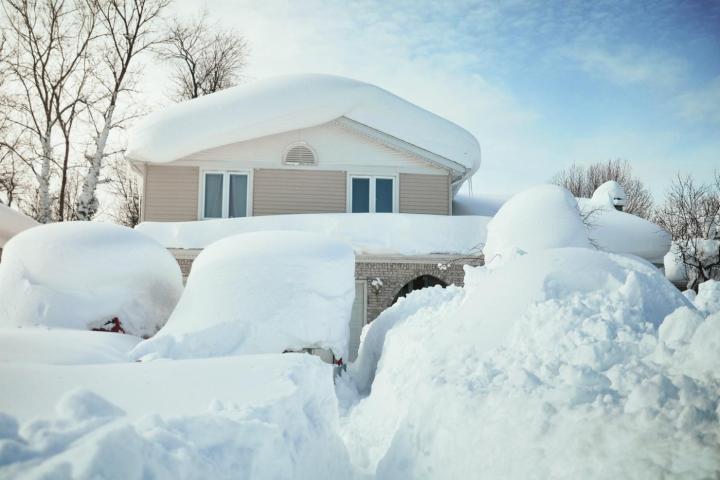
Hopefully East Coasters expected to be affected by the snow already have emergency preparedness kits in their homes. New York Mayor Bill de Blasio has been acting as a horseman for the snowpocalypse for almost 24 hours, giving residents time to stock up on food and water. Three days’ worth of food and water is the standard recommendation, and each person needs a gallon of water per day. For food, nonperishable items, preferably those that don’t require cooking, can range from granola bars to cans of tuna and veggies to peanut butter and crackers. Food in the fridge is safe to eat, if the power goes out for less than four hours; a freezer full of food should stay cold for 48 hours, according to the CDC, so try to keep the door closed. Pets also need plenty of water and food, and babies have special needs, including formula and diapers.
Speaking of diapers, sanitary items like hand sanitizer, toilet paper, and plastic bags will come in handy if something happens to the water supply. It’s also a good idea to fill up on prescriptions and make sure the first-aid kit is good to go.
Related: How to prepare your car for winter
In preparation for the storm, gather flashlights, batteries, phone chargers, blankets, a radio, and lots of layer-able clothing. Your radio should get NOAA weather alerts and be hand-crank operated, in case the batteries fail and the power’s out for a long time. Some newer models even come with smartphone chargers.
FEMA has some additional recommendations of how to stay safe once the blizzard hits, especially if you lose power. Limit the number of rooms you use and keep the doors to all others closed. Put on lots of layers and use blankets and sleeping bags. Don’t use generators or barbeques indoors or heat your home with the oven. Check the batteries on your carbon monoxide detector; test your smoke detector’s batteries, if you’ll be using candles.
Cover windows with plastic to help insulate the house; keep faucets dripping to minimize the chance of a pipe bursting.
Be on the lookout for signs of frostbite (extremities lose feeling and turn pale) and hypothermia (uncontrollable shivering, memory loss, slurred speech, exhaustion, disorientation, and incoherence). Warm frostbitten skin by covering it up but don’t rub; they’ll need medical attention. If someone is exhibiting symptoms of hypothermia, he or she will also need medical care as soon as possible; in the meantime, pile on the blankets and give him or her warm beverages (sans alcohol, so no hot toddies).
If the power is out for several days, the city may set up shelters. Text SHELTER + your ZIP code to 43362 to get a list of places to go in your area.
Stay safe, East Coast!


